It should probably come as no surprise to most readers that I have a distinct aversion to romantic comedies. What came as quite a surprise to me was the fact that I didn’t hate director Michael Showalter’s Kumail Nanjiani vehicle, The Big Sick. I suppose I might have seen this coming, given my affinity for both Showalter and Nanjiani, but the fact of the matter is that what I find so appealing about this film has less to do with its star or director than with all of the ways in which it diverges from rom-com convention while somehow stubbornly maintaining nearly every beat one would expect of any other entry in the genre.
Nanjiani plays a marginally fictionalized version of himself (even the name remains the same), working from a script co-written by the star with his wife, Emily V. Gordon, based on their real-life courtship. As a struggling stand-up with a very traditional family of Pakistani expats, the success of Nanjiani’s burgeoning relationship with young grad student Emily (Zoe Kazan, as Gordon’s on-screen proxy) seems as likely to be derailed by his affinity for B-horror classic The Abominable Dr. Phibes as his mother’s dogged efforts to marry him off to a nice Pakistani girl. It’s a pretty standard rom-com setup, at least until a sudden and potentially lethal illness lands Emily in the hospital and causes Kumail to re-evaluate his priorities.
At its core, The Big Sick’s dramatic conflict hinges on the Nanjiani clan’s intense disapproval of Kumail’s increasingly Westernized lifestyle, and the film shines in its uncommonly sincere moments of culture-clash humor — especially with the second-act introduction of Emily’s parents, played by Ray Romano and Holly Hunter. Romano and Hunter add a layer of complexity and tonal shading that feels lacking in the first half of the film, and the picture succeeds largely on the basis of their inclusion. Nanjiani and Kazan certainly hold their own, but the presence of veteran performers of Hunter’s and Romano’s caliber definitely helps them shoulder the narrative and comedic burden.
Producer Judd Apatow’s fingerprints are somewhat evident on this one, especially in the first act’s improvisational tone and self-indulgent pacing. But Apatow’s influence is less intrusive than it could have been, and the film finds success in its more personal moments, whether these are the Nanjiani family’s dinner rituals or Kumail and Emily’s conflicted reconciliation. It’s also laugh-out-loud funny in some unexpected places — a tone-deaf 9/11 question from Romano receives a retort from Nanjiani that prompted one theatergoer to stop in midstride on his way to the bathroom before commenting to me that he was glad he hadn’t missed it.
If you’re looking for a date movie that won’t lead to the inevitable post-screening conversation about how romantic comedies peaked in the 1930s (I’m not the only person who does that, right?), then you’d be hard-pressed to do better than The Big Sick. Few films so successfully blend comedy and melodrama without devolving into saccharine pandering, and certainly none that wouldn’t require some digging on streaming sites. If you feel the need to test your significant other with Dr. Phibes, you can make it up to them with this. Rated R for language including some sexual references. Now Playing at Carolina Cinemark, Fine Arts Theatre, Regal Biltmore Grande, Epic of Hendersonville.



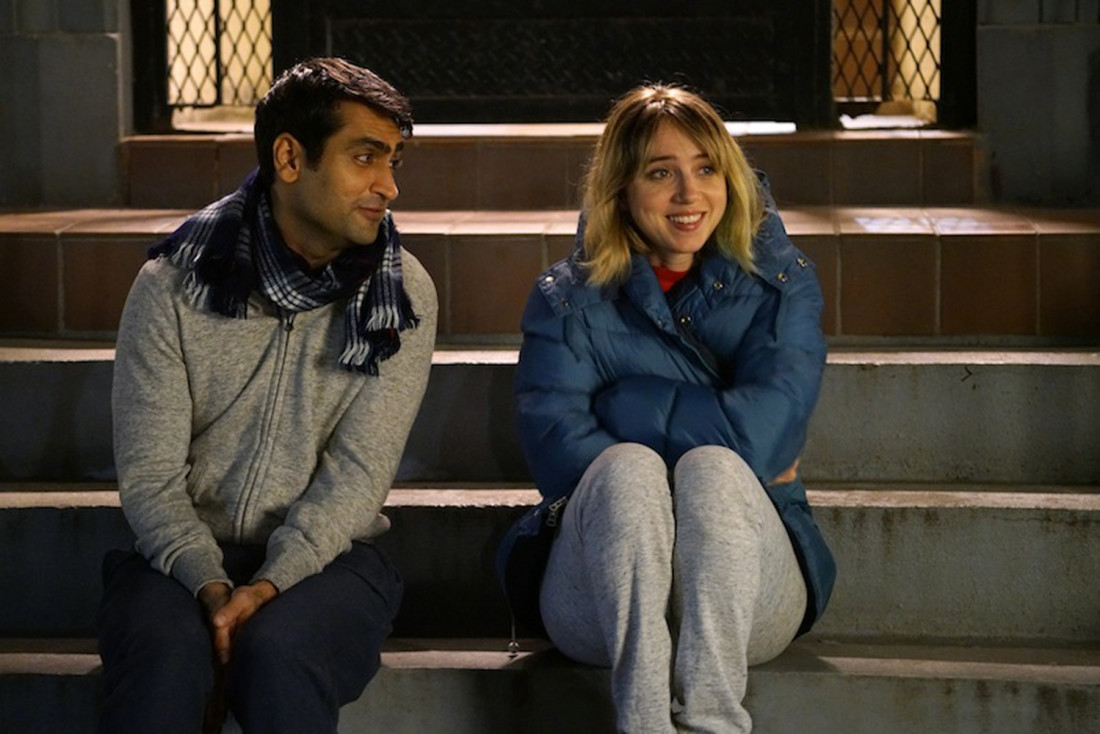
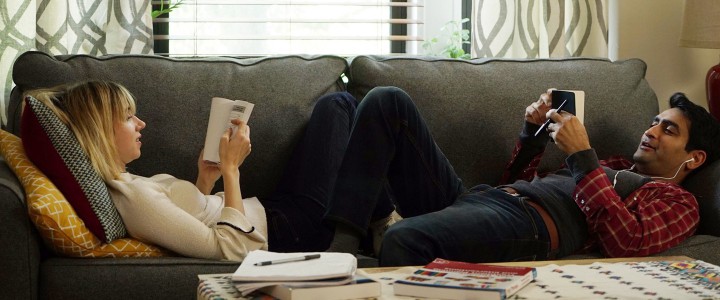
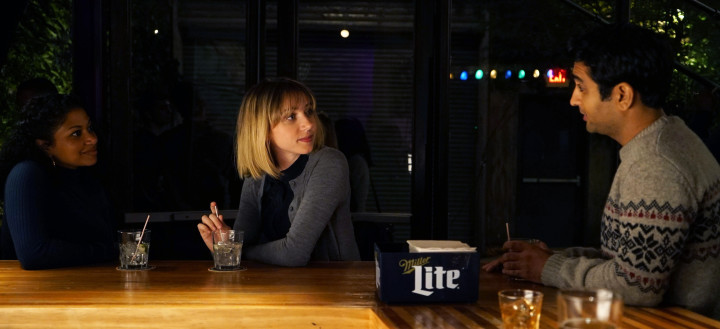
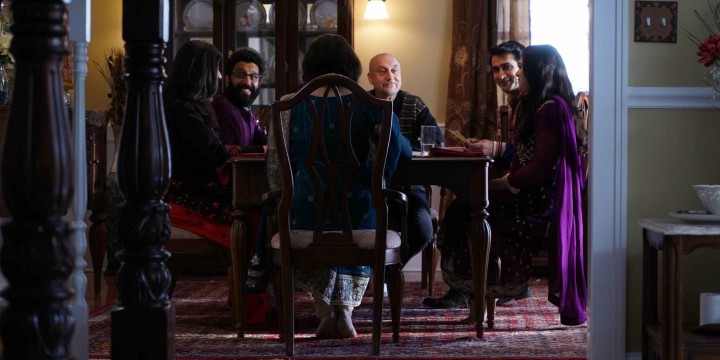
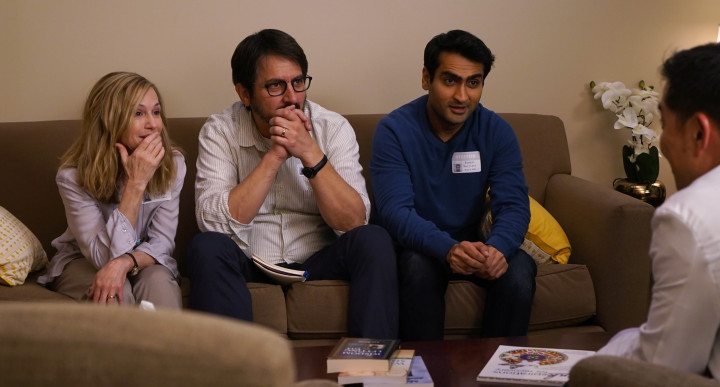
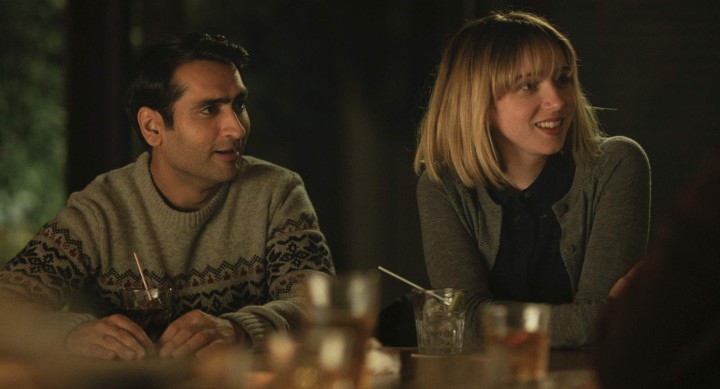
I once had a Groovy Movie with friends over for both Phibes features [from factory ßeta copies] where my wife watched both of them to no damage. Their tone of campy, florid pulp served in an art-deco coffin was certainly unique. As was “The Bg Sick.” You’re correct. All of the romcom beats were indeed present and accounted for yet undermined delightfully by the overriding structure that the plot pivot [which was certainly unique] provided. In fact, we just watched this with our neighbors as another Groovy Movie and it was a resounding success. It reminded my wife and I of the central conflict of Ken Loach’s similar [and also excellent] “Ae Fond Kiss” which posited an interfaith romance between a Pakistani immigrant in the UK and an Irish Catholic woman. “The Big Sick” played out differently, but both were interesting glimpses into the difficulties to be found when the hidebound strictures of religion are in conflict with matters of the heart.